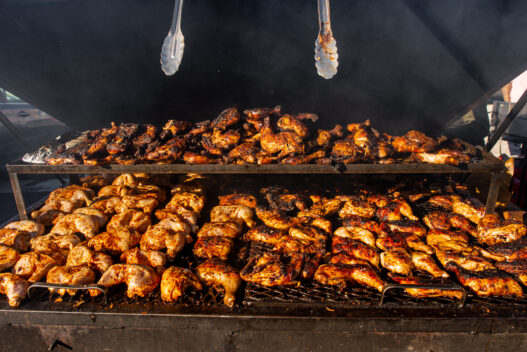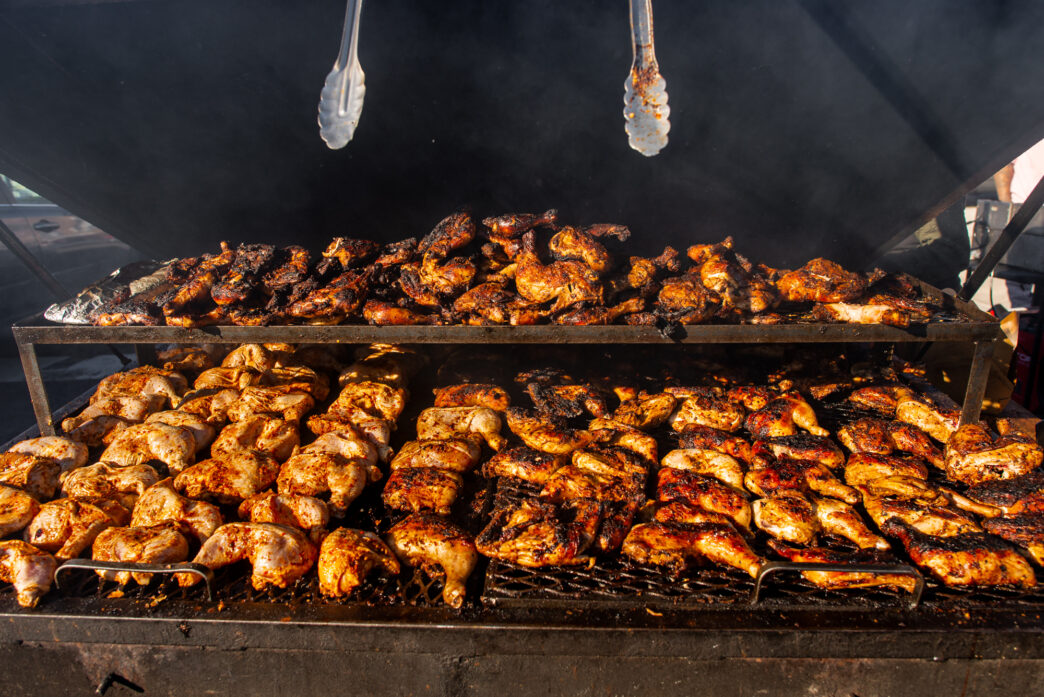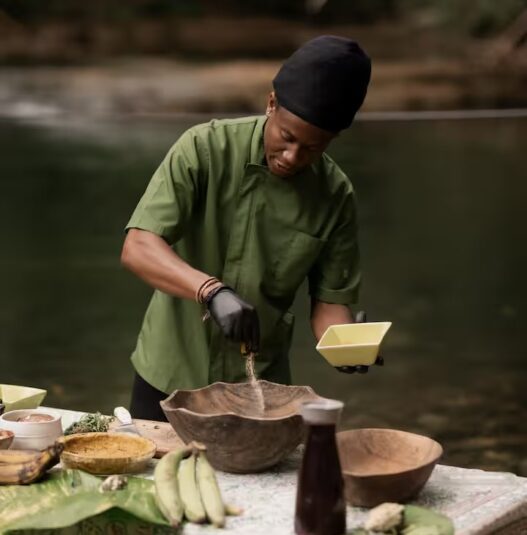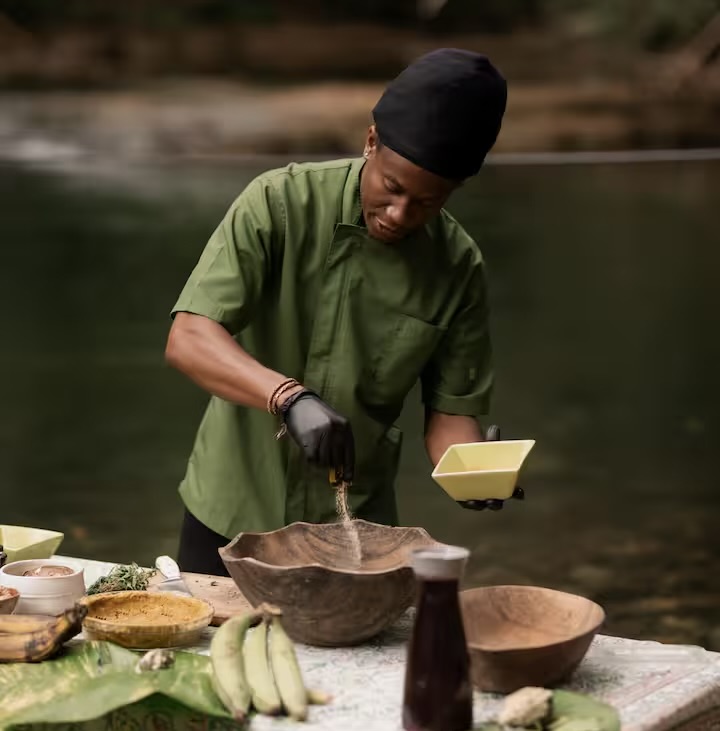Jerk chicken is a beloved dish that has gained popularity worldwide. Its unique blend of flavors and cooking techniques make it a standout in Caribbean cuisine. In this article, we will explore what makes jerk chicken so special and where it is truly authentic.
Jerk chicken is a staple dish in African and Caribbean cuisine, with a cult following of its own. The smoky and spicy flavors of jerk chicken are unmatched, making it a favorite among food enthusiasts. The cooking process involves marinating the meat and then grilling or smoking it over a fire, which imparts a sweet smokiness while keeping the meat juicy and succulent.
While ackee and saltfish is Jamaica’s national dish, jerk chicken has become widely known and loved. To truly experience authentic jerk chicken, one must visit Jamaica and indulge in the local favorites. The origins of jerk cooking can be traced back to the indigenous Arawak and Taíno people of Jamaica in the 17th century. The technique of preserving and flavoring meats by grilling or smoking them was passed down through generations.
The name “jerk” refers to the cooking technique, not the seasoning itself, which is a common misconception. The seasoning for jerk chicken typically includes a blend of spices such as allspice (known locally as pimento) and scotch bonnet pepper, along with other herbs and spices like thyme, ginger, and garlic. The meat is traditionally chicken or pork and is marinated in the spices for several hours before being cooked over a wood fire, giving it the iconic smoky taste.
Traditionally, jerk chicken or pork is cooked in a pit or on a grill, but modern cooking methods are also used nowadays. This dish has become internationally renowned and is often served with rice and peas, fried plantain, and festival (a type of sweet fried dumpling). The popularity of jerk chicken and pork can be attributed to the Jamaican diaspora and the widespread appreciation for Caribbean cuisine.
What sets Jamaican jerk apart from other Caribbean styles of cooking is its unique blend of spices, cooking techniques, and cultural significance. The signature spice blend creates an aromatic flavor profile that is synonymous with Jamaican jerk. The traditional wood-fire cooking method adds a smoky depth and complexity to the meat, making it truly exceptional.
Jerk cooking is not just a way of preparing food, but also a social and cultural tradition in Jamaica. It is often associated with outdoor gatherings, celebrations, and events. While other Caribbean islands may have their own versions of grilled or spiced meats, Jamaican jerk stands out as a distinctive and beloved aspect of Caribbean cuisine. The passion, cooking techniques, and the use of special firewood and authentic herbs and spices grown locally contribute to the unique flavor of Jamaican jerk.
In Jamaica, jerk is not limited to chicken or pork. It is also applied to other meats like fish, rabbit, and even vegetables. Almost every restaurant in Jamaica serves a jerk dish that will tantalize your taste buds. Indulging in jerk cuisine is a must when visiting the island, as it is deeply ingrained in Jamaican culture and heritage.
In conclusion, jerk chicken is a special dish with a rich history and cultural significance. Its unique blend of spices, cooking techniques, and smoky flavors make it a standout in Caribbean cuisine. Whether you enjoy it in Jamaica or in other parts of the world, jerk chicken is sure to leave a lasting impression on your taste buds. For more information on Jamaican cuisine and culture, visit www.purejamaicamedia.com.






















